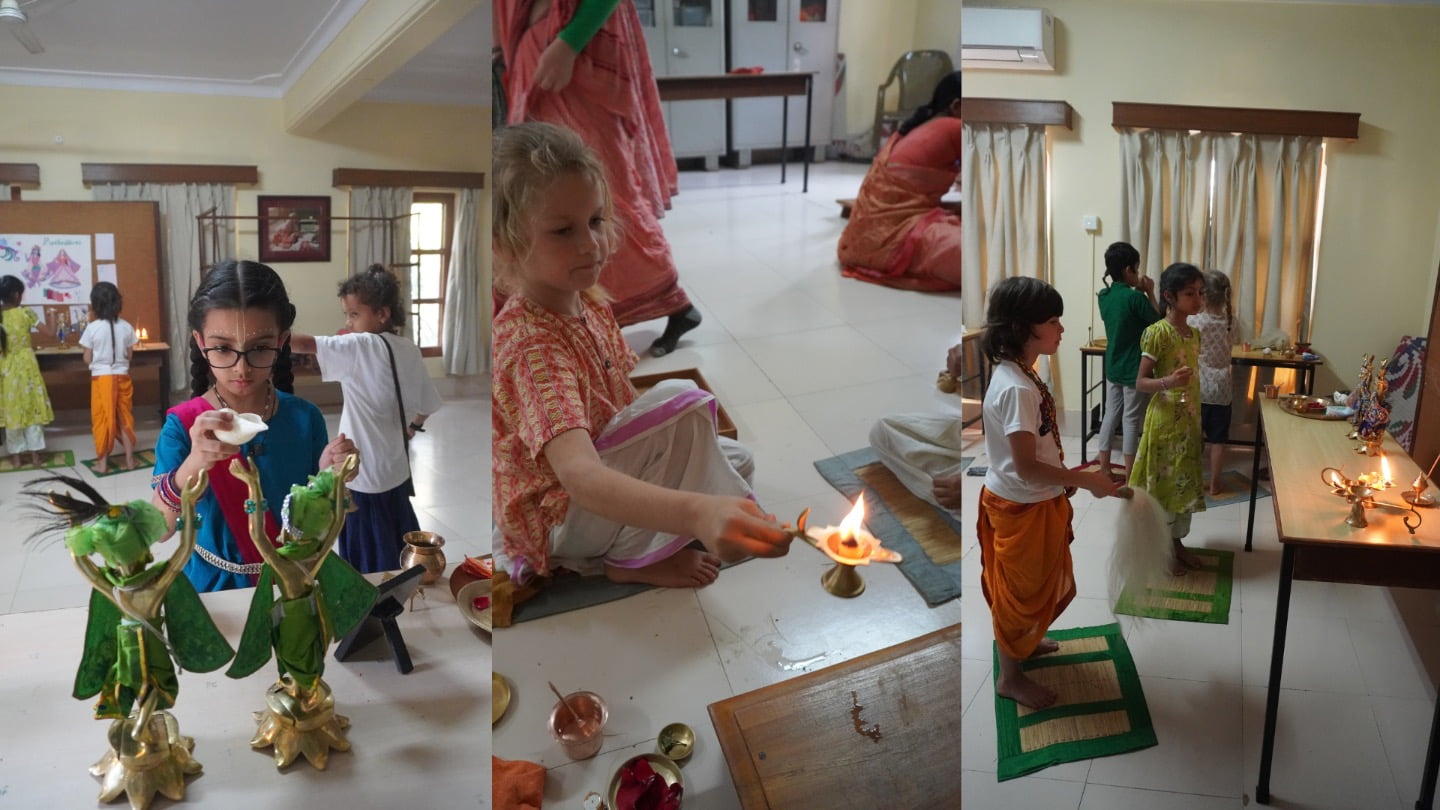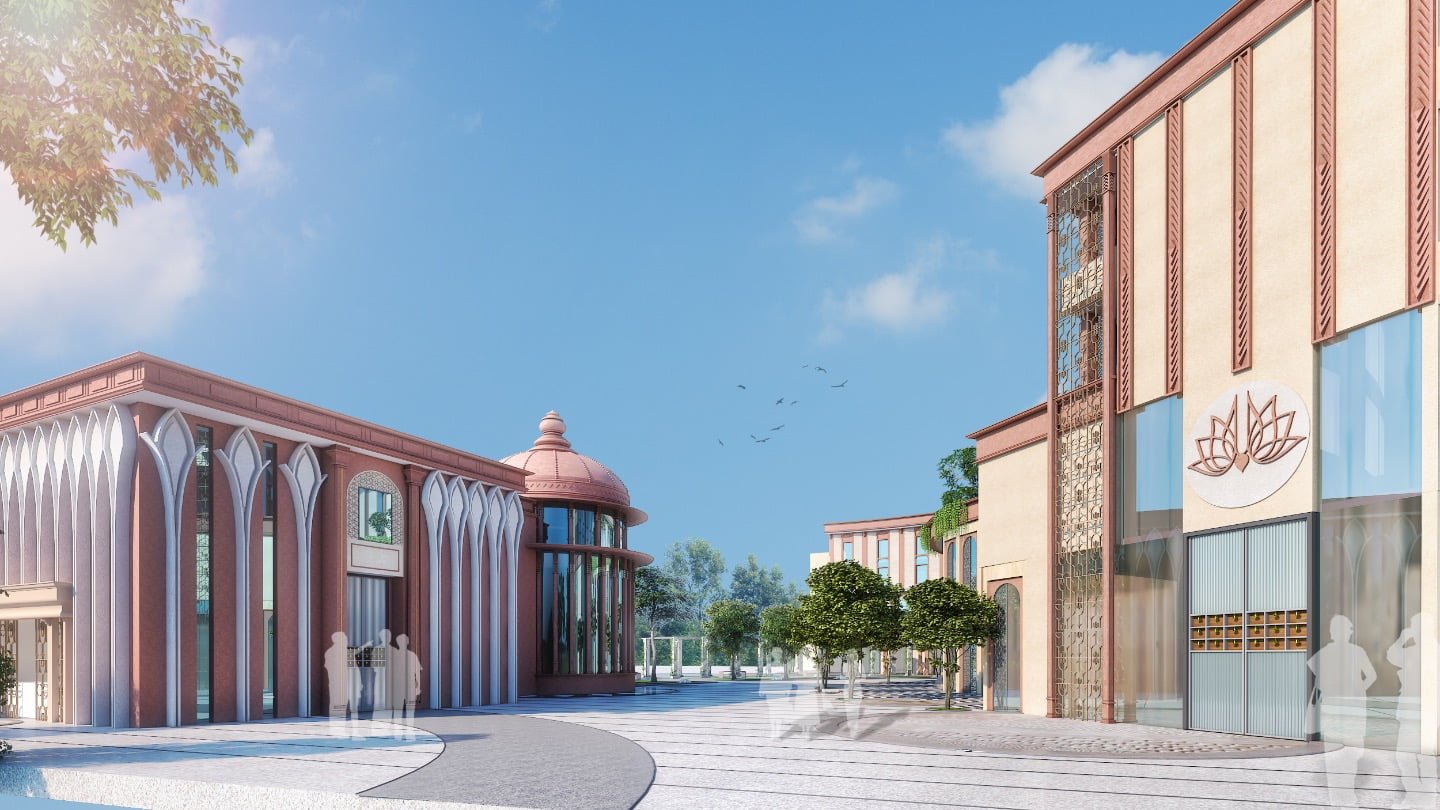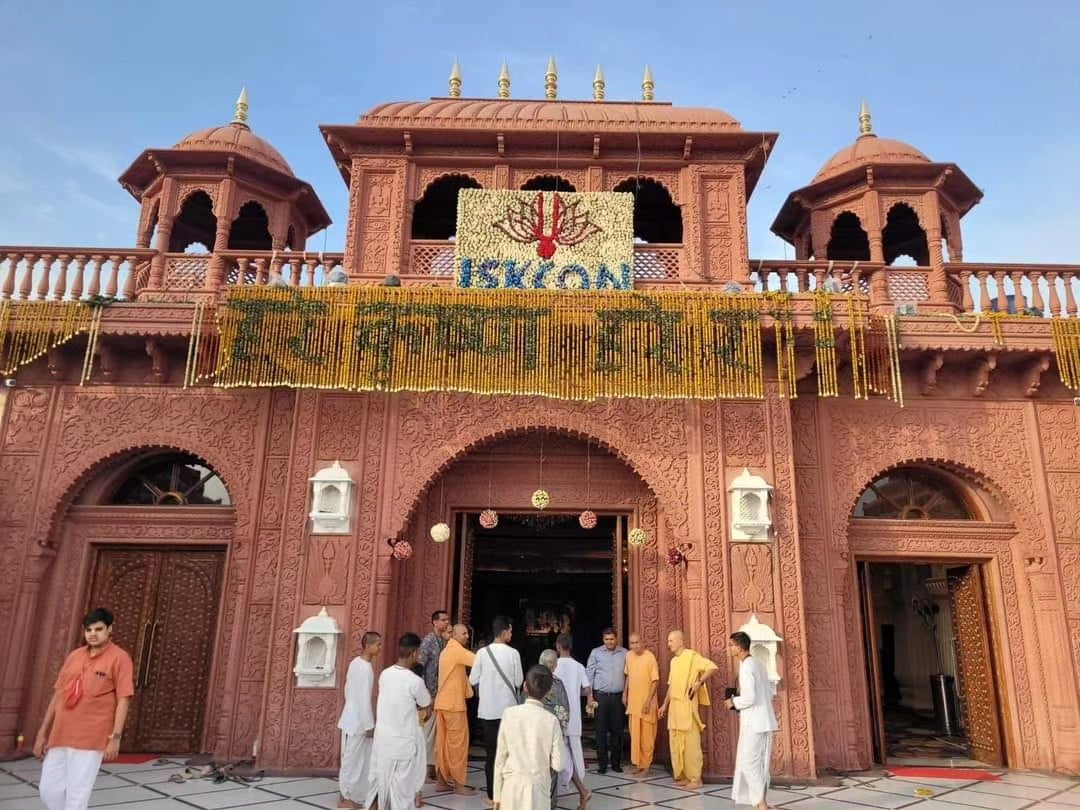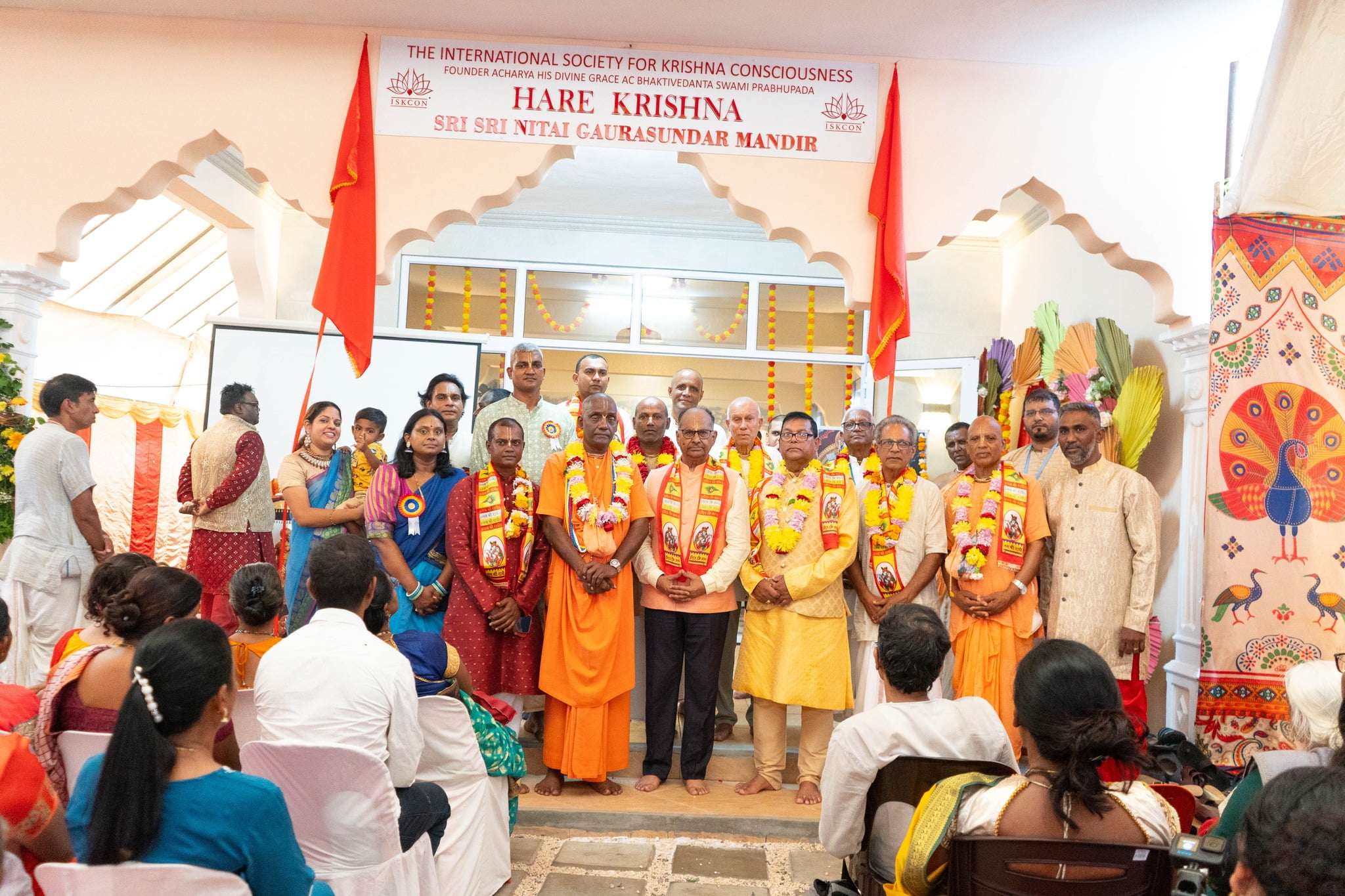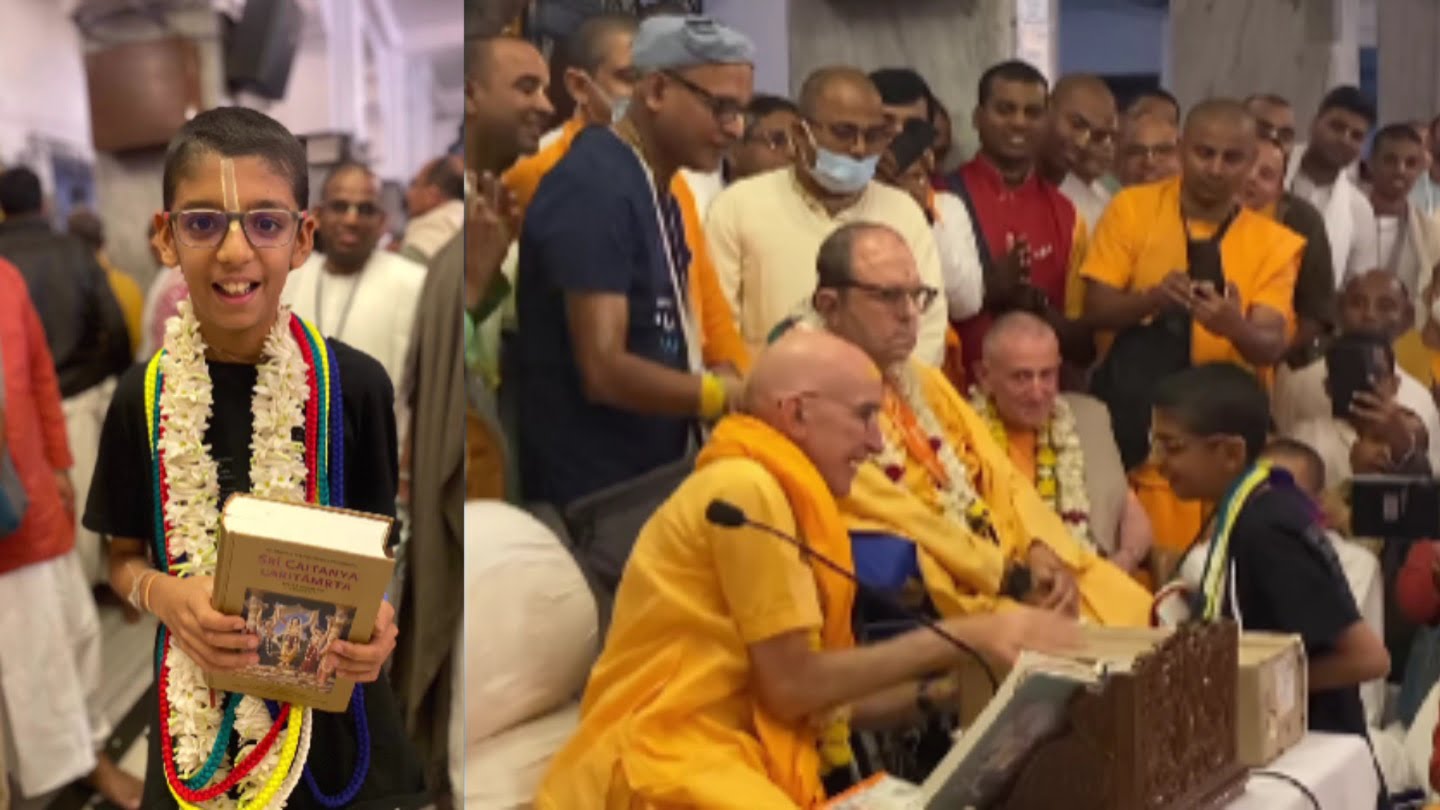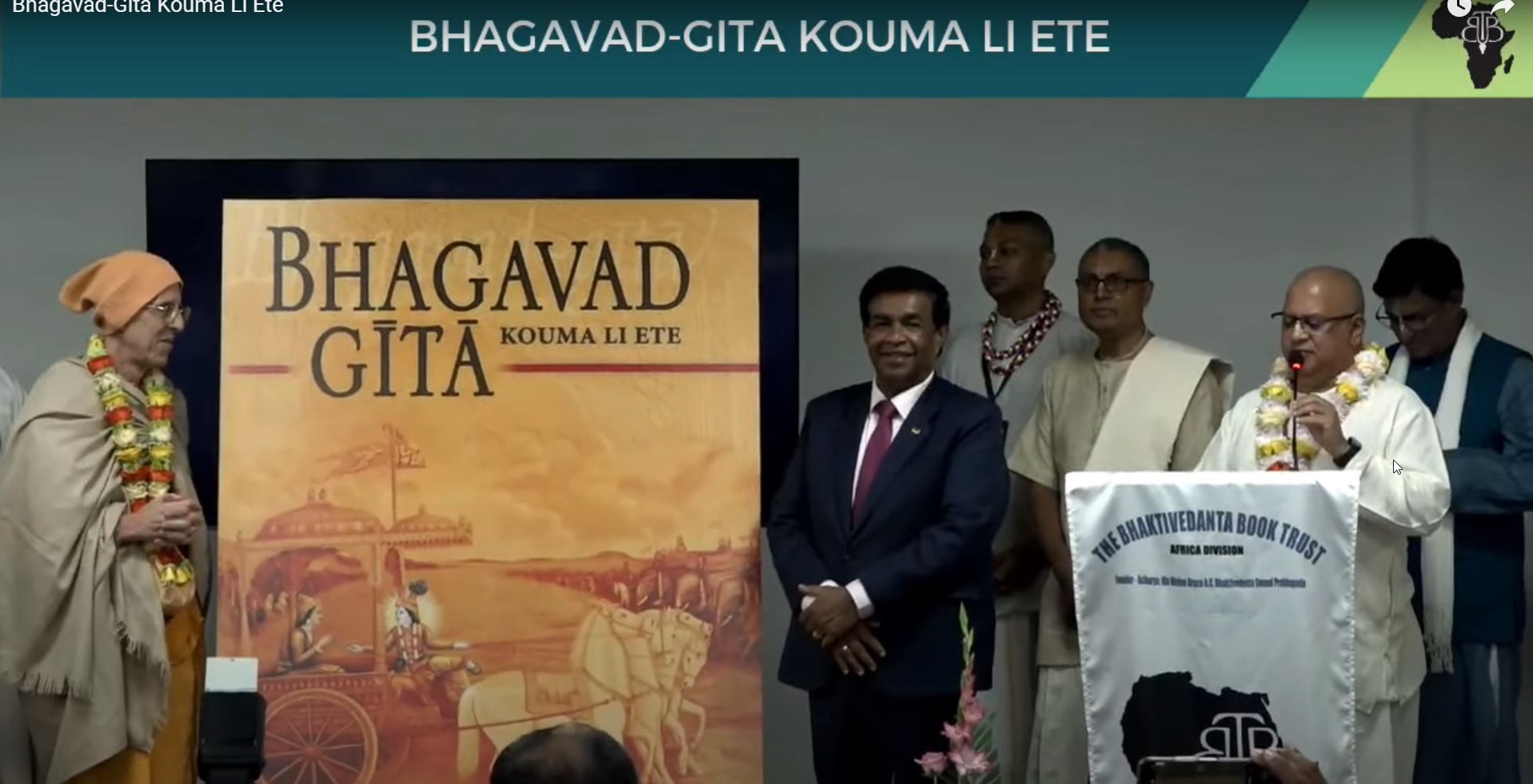The Interview: A Gurukuli Temple Vice President Shares His Journey
By Madhava Smullen | Jan 02, 2019
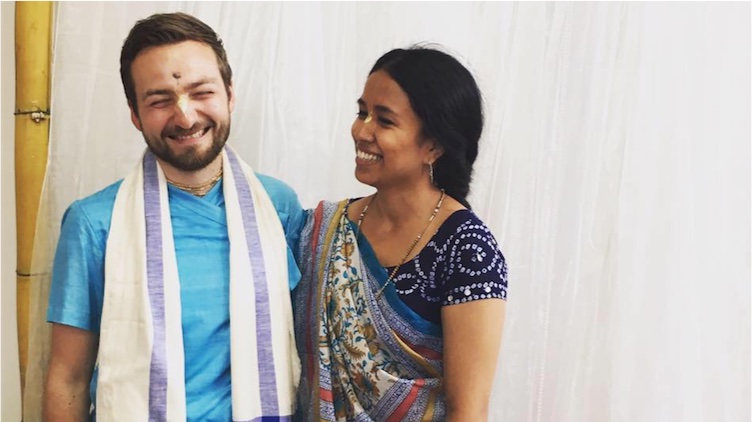
Succession is currently a hot topic in ISKCON. So recently we spoke to Janardan Kewin, an Australian alumnus of Vrindavan Gurukula, who now works professionally as a regional manager at the University of Queensland, serves as Vice President at ISKCON Brisbane, and is known for his sweet kirtans.
With intelligence and wit, Janardan shared with ISKCON News his experience of gurukula, why “anyone would ever want to be a temple manager,” how he has contributed to the ISKCON Brisbane community, and what would help younger generations take on responsibilities in our society.
ISKCON News: When were you born?
Janardan Kewin: I am 32 years old. I was born in Sydney in 1986, which was the 500thyear since Lord Chaitanya’s appearance. I wish that gave me some sort of magical spiritual super power, but unfortunately that’s not the case.
Can you tell us about the family you came from, and how you ended up going to Vrindavan Gurukula?
My mother’s name is Ananda and my father’s name was Vrishabhanu. They joined in the early ‘80s in Sydney. Before joining ISKCON my mother had studied naturopathic medicine and my father agriculture. However after joining ISKCON their service became “sankirtan,” which mostly involved the collection of money to fund ISKCON projects. A significant portion of funding for the original Mayapur complex came from Australian devotees. Like many others, they sacrificed their youth to help realize Srila Prabhupada’s vision.
I visited India for the first time with my parents when I was three years old, and had my 4thbirthday in Mayapur. Soon after returning to Australia my family moved north to the beautiful New Govardhana farm community where I attended my first gurukula. In 1994 at the age of 7 I was lucky to receive a scholarship to attend the gurukula in Vrindavan, where I stayed until 2001.
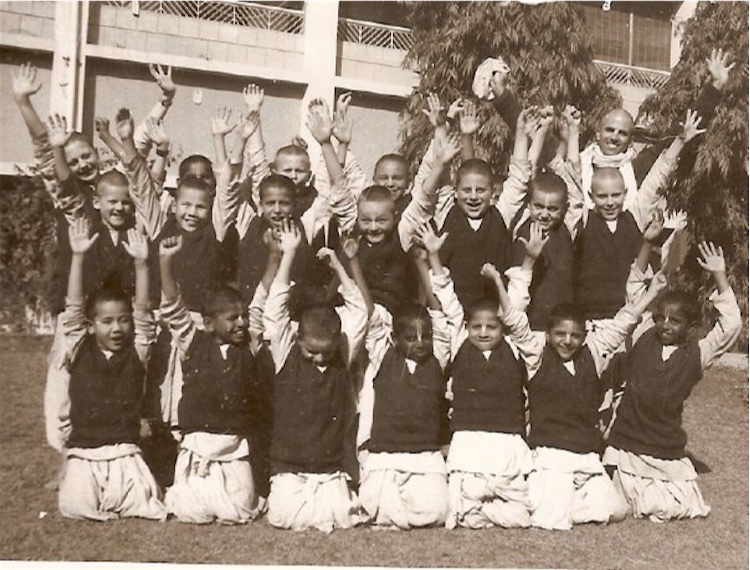
In Vrindavan Gurukula (middle row, center)
What was your experience in Vrindavan Gurukula like? How did it influence the direction your life would take?
People often ask how my parents could have sent their young son to the other side of the world by himself for so long, and to India of all places. I never felt forced to be there. My parents would call me and say, “Let us know if you want to come home and we will get you on the next flight back to Australia.” But I was an independent kid. I liked living in Vrindavan with my friends – it seemed like an adventure. Before going for the first time I remember imagining that living in the Vrindavan gurukula was going to be like Tarzan living in the jungle with monkeys and swinging from vines. It wasn’t exactly like Tarzan, but it was certainly an adventure and a unique way to grow up.
My gurukula experience was positive overall and instilled in me a strong impression that there is a higher purpose in life beyond materialism. Growing up in Sri Vrindavan Dham, I felt a strong connection and obligation to Sri Sri Radha and Krishna.
My father passed away in 2001. It was my final year of gurukula in Vrindavan before going back to live with my family in Australia.
What do you do professionally?
My current job title is Regional Manager, South Asia. I work at The University of Queensland, one of the leading universities in Australia. I applied for this job because it involved travelling to India regularly, and I liked the idea of having a job that would take me to Vrindavan. The job involves business development through international student recruitment and partnership development in South Asia. Before this I worked in a marketing and communications capacity for the university.
When and how did you become the Vice President of the Brisbane temple? What inspired you to want to do this service?
I began serving as the Vice President in an official capacity in 2016.The service had been offered to me over a few years but initially I didn’t actually want it and declined. Having an official ISKCON position was not an aspiration of mine and I felt that I was not properly qualified for the job. I’m not trying to be humble, it is just a fact. Spiritually speaking there is a lot lacking.
Kalasamvara Prabhu, who has been the temple president in Auckland, New Zealand for a long time, inadvertently inspired me to accept the service. I once asked him why anyone would ever want to be a temple manager, and his reply was that it is the best job in the world. All the stress of the job means that he is always thinking about his service to Srila Prabhupada and the devotees, and this deepens his attachment for them. The stress of temple management is trivial compared to the stress that the residents of Vrindavan felt when Krishna left. Yet that anxiety only deepened their love for Krishna. Kalasamvara Prabhu is somewhat of an avadhuta (spiritual person beyond worldly concerns) to have that perspective, but it encouraged me.
Other senior devotees also motivated me to accept this service to set an example as they wanted to see more of the second and third generation taking on responsibility in ISKCON.
Appreciation for this service didn’t come until I started doing it. Because I was dealing with the Brisbane devotees more, I got to know them more, and I developed a deep appreciation for their dedication. The Brisbane ISKCON community is mostly professional families with many responsibilities, however they still manage to keep Krishna at the center of their lives and make time to do service.
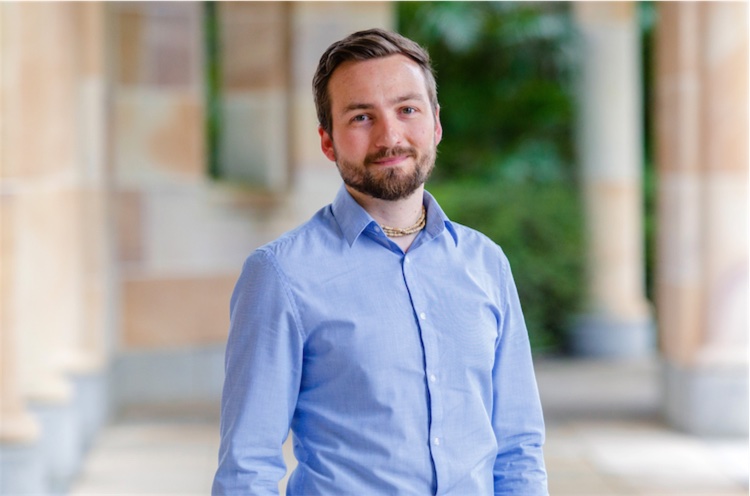
Janardan works professionally a regional manager at the University of Queensland
In what ways have you contributed to the Brisbane ISKCON community in your role as VP?
The key element of my service is open communication, to ensure that relationships between devotees stay positive and that we all serve cooperatively. It is important that if any devotee has concerns, questions or ideas they feel free to talk to the temple management.
I like engaging devotees according to their nature and ability, and in Brisbane we are lucky to have many highly qualified devotees. For example, one project I instigated was the creation of an ISKCON Brisbane strategy. I engaged a young devotee who is a very successful business strategist to lead a series of strategy workshops with the leaders in the community. The strategy that was developed as a result of these workshops is now the framework for everything we do.
The devotees in Brisbane have been trying to build a temple for many years now. The current premises is a house that has been retrofitted to be a temple. The Brisbane City Council recently granted development approval and construction is due to commence early in 2019. This is an exciting but daunting time for us as we need to collect a lot of money to be able to complete the new temple.
Other projects we are working on include the development of a digital plan and the establishment of an inner city preaching centre, where we hope to develop relationships with and teach bhakti yoga to people who wouldn’t typically identify with an “Indian” tradition. We are on the hunt for the right talented devotee from anywhere in the world to lead this mission.
I also help to coordinate programs, cook at the temple with my fiancée, teach mridanga to kids and do other day to day services. Nothing is off limits.
How do you work with the Temple President, and what’s it like to balance all your responsibilities?
The temple president is Jaya Vijaya prabhu. He handles the general management of the current temple and leads the new temple project. We have developed a good relationship over the years.
It is tough to balance service, work and other commitments, but by serving the devotees here in a small way I have developed admiration and gratitude for them which inspires me to try and serve them better, and that is my spiritual remuneration.
What are some of your service and professional goals for the future?
Professionally speaking my goal is to be financially independent, or to at least have a good work life balance.
Regarding my service, I would like to see the measureable goals that we set out in the ISKCON Brisbane strategy achieved.
I’d also like to see an additional successful preaching centre here.
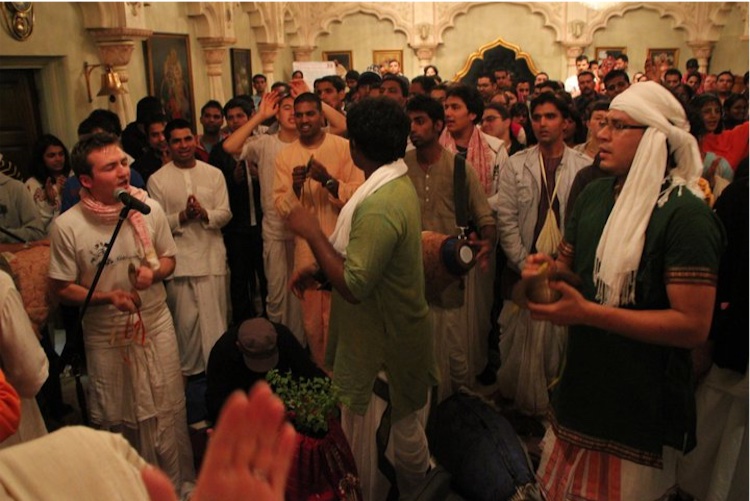
Janardan leads kirtan at the ISKCON Brisbane temple
Many devotees are concerned about succession and the future of ISKCON these days. What do you think would facilitate gurukulis taking on more responsibilities in ISKCON? And what do you think the future holds?
Gurukulis often have great ideas on how to improve/expand preaching efforts or community relations, but may lack the motivation or platform to implement their ideas. Unlike first generation devotees, those who have grown up in Krishna conscious families didn’t have to choose to sacrifice their entire life and join a very alternative religious organization. We have to figure out how the rest of the world outside of ISKCON works, and where we fit in it. I think this can give us a unique outward facing perspective.
I can’t give an educated comment on what I think the current trajectory of ISKCON as a global organisation is. But if the first generation were to provide more opportunities for gurukulis to develop their capabilities, and empower them to become leaders in their communities, then surely that would be beneficial.
This could be done by local communities actively caring for their young members and encouraging them to pursue an education according to their inclination in a field that might be dovetailed in service, or through internal initiatives like the one that Bhakti Rasayana Sagar Swami is working on (http://108pro.com).
Equally it is up to the gurukulis or emerging generations to accept these opportunities. If they feel that they are valued members of a thriving community, and if they have strong relationships in that community, then some of them may feel motivated to take on responsibility.
So I think that for our society to be a success we need to plan, and we need to develop stronger bonds with each other.
Srila Prabhupada says this in his purposes of ISKCON.
- “To systematically propagate spiritual knowledge…”
Systematically means to have a plan.
- “To bring the members of the Society together with each other and nearer to Krishna…”
- “To bring the members closer together…”
Our entire philosophy is about developing personal relationships. Bhakti Yoga literally means unity through pure love!



